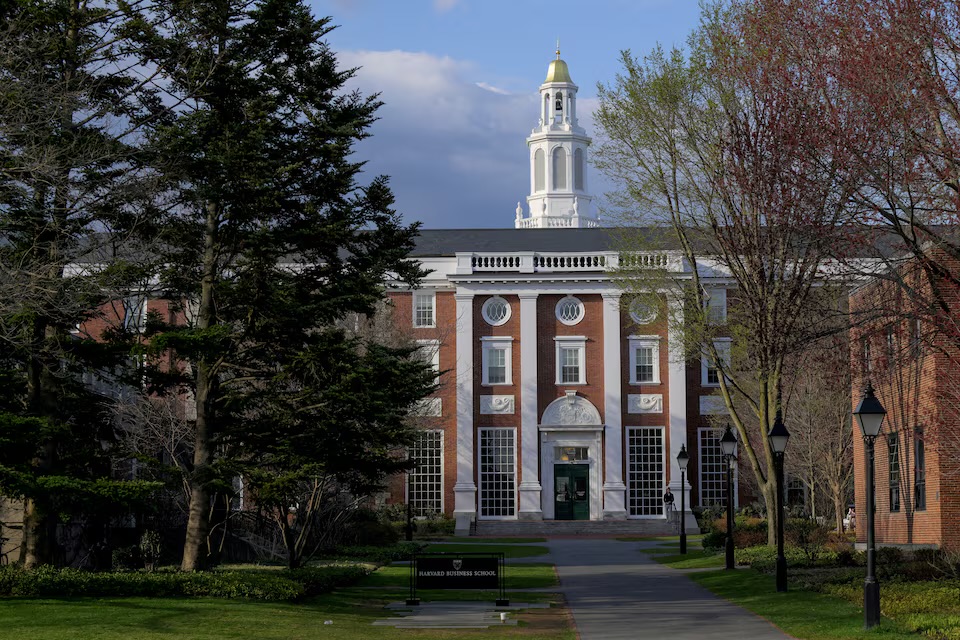In a move that intensifies an ongoing battle with one of the nation’s most prestigious universities, President Donald Trump on Wednesday suspended the entry of foreign nationals seeking to study or participate in exchange programs at Harvard University, citing national security concerns.
The presidential proclamation, effective for an initial period of six months, blocks new international students from entering the U.S. to attend the varsity. It also directs the State Department to consider revoking the academic or exchange visas of current students who fall under the directive’s criteria. The suspension could be extended beyond six months.
The school swiftly condemned the move, calling it “yet another illegal retaliatory step taken by the Administration in violation of its First Amendment rights.” The university vowed to continue defending its international students.
The order follows a week of legal wrangling in federal court. U.S. District Judge Allison Burroughs in Boston recently indicated she would issue an injunction protecting the school’s ability to enrol international students, who comprise roughly a quarter of its student body.
The administration had earlier attempted to revoke the institution’s Student and Exchange Visitor Program (SEVP) certification, a move that was temporarily blocked by Judge Burroughs.
Wednesday’s action adds a new layer to what the school officials have described as a multifaceted campaign by the Trump administration against the university. That campaign has included the freezing of billions in federal grants, threats to revoke the varsity’s tax-exempt status, and increasing scrutiny of the school’s operations.
However, the State Department was said to have instructed its overseas consular offices to implement heightened vetting of visa applicants intending to travel to the school, following Burroughs’ indication that she would issue a broader injunction.
White House proclamation accuses Harvard
The White House proclamation accused Harvard of having “extensive entanglements with foreign adversaries,” including China, and of harbouring “a history of concerning foreign ties and radicalism.” It cited FBI warnings about foreign espionage and information theft within American universities, as well as alleged lapses in Harvard’s handling of campus discipline and cooperation with Homeland Security.
Harvard has rejected these claims, maintaining that the administration’s actions are politically motivated. The university argues it is being targeted for resisting efforts by federal officials to influence its governance, academic direction, and ideological leanings.
Homeland Security Secretary Kristi Noem had previously announced the revocation of Harvard’s SEVP certification on May 22. But after legal challenges mounted, the department backtracked, opting to pursue the matter through a slower administrative process.
Despite the shift, Judge Burroughs said she planned to issue a preliminary injunction to protect Harvard’s international student population.



